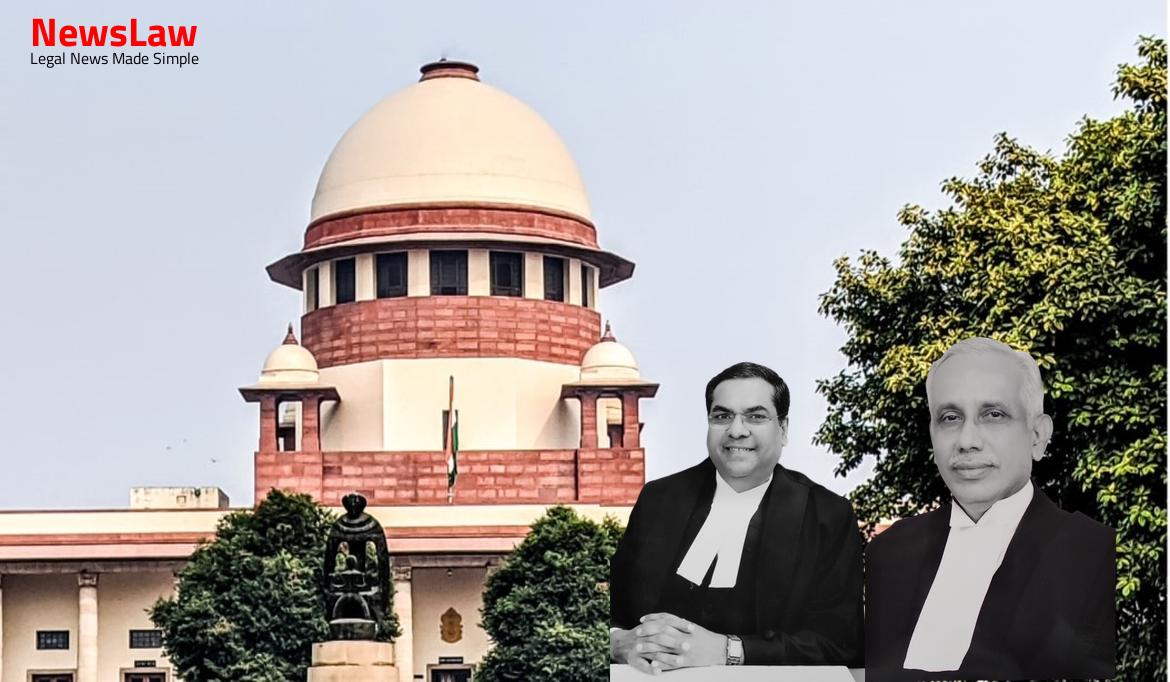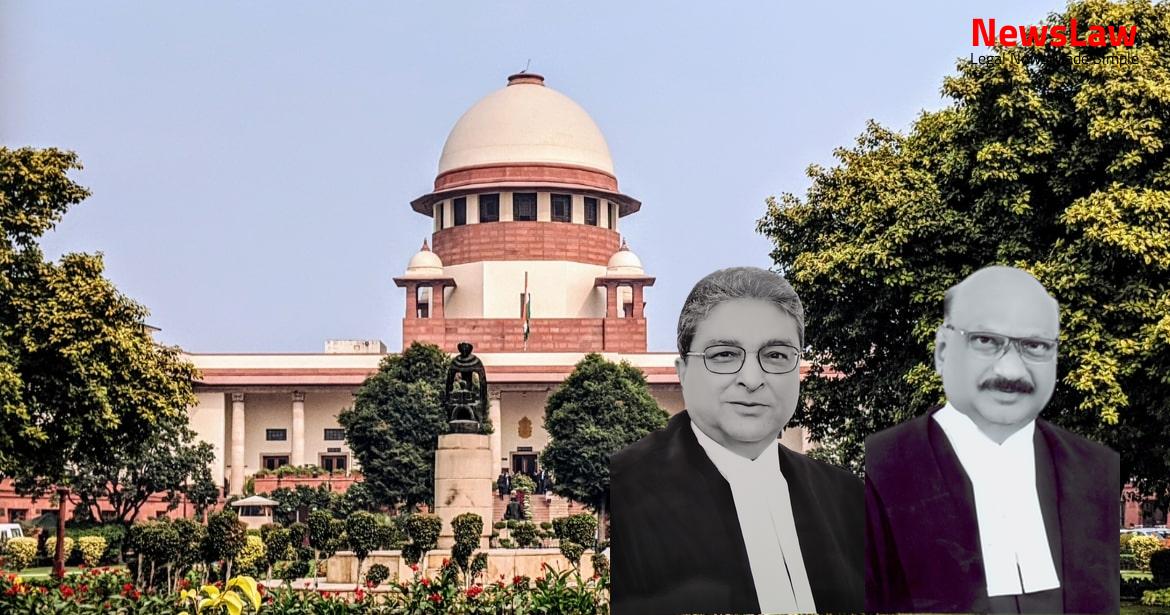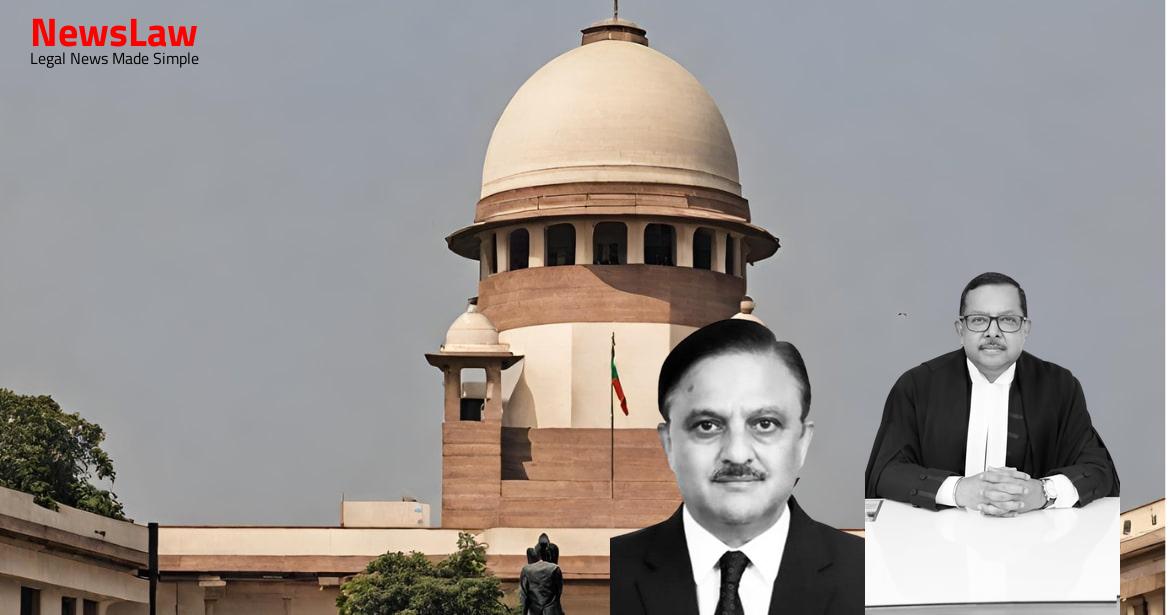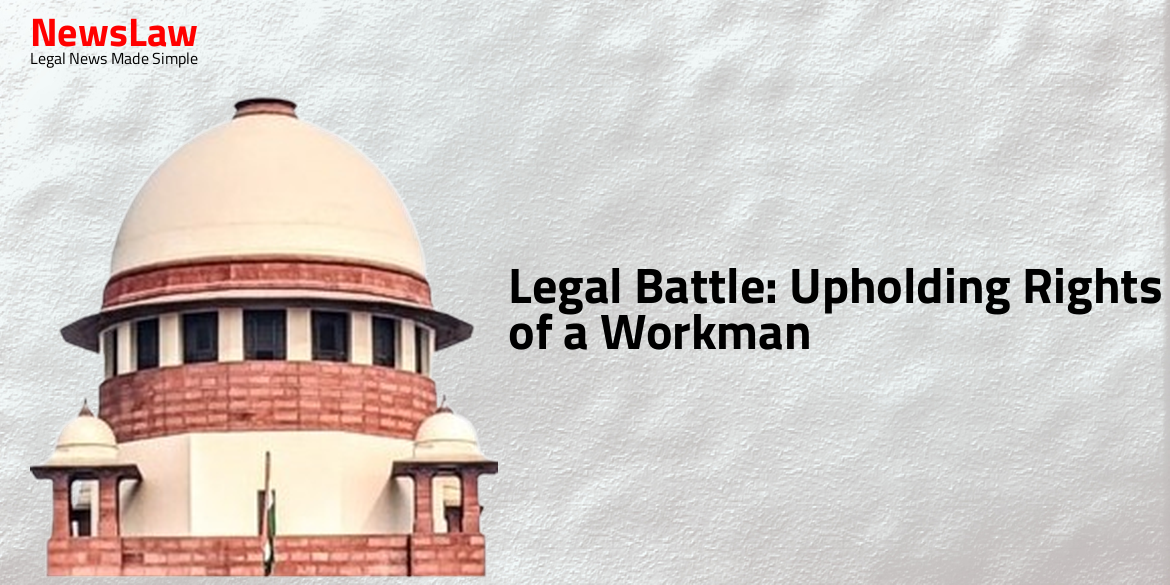The case of Sethurama Rao v. Kumar revolves around a dispute over specific performance. The respondent, Kumar, sought the nullification of a sale deed while the petitioner, Sethurama Rao, contested the claim. Ms. Sanya Kumar, representing the respondent, defended the High Court’s decree. Follow the intricacies of this legal battle in the detailed summary below.
Facts
- The plaintiff executed a deed of sale in favour of the defendants for a sale consideration of Rs.35,000/-, receiving Rs.6000/- as difference in the sale price.
- The second defendant admitted execution of the mortgage deed and borrowing of Rs.29,000/- by the plaintiff.
- The plaintiff borrowed a total of Rs.29,000/- from the defendants.
- The plaintiff gave up demand for reconveyance and executed a sale deed.
- The reconveyance agreement was not to be acted upon.
- The plaintiff mortgaged the property to the bank on different occasions for loans.
- Defendants paid off the bank dues to save the property from auction.
- No proof of readiness and willingness to perform plaintiff’s part of the contract under the Specific Relief Act.
- The sale deed was not nominal but a security for the loan advanced.
- Plaintiff’s wife testified as PW-1 and exhibited documents P-1 to P-19.
- Second defendant testified as DW-1 and exhibited documents D-1 to D-15.
- Defendants were put in possession of the property through a mortgage deed in October 1973.
- An agreement of reconveyance was executed by the defendants in 1975 but plaintiff did not agree to it.
- Plaintiff’s wife was brought on record after his demise as the legal representative.
- Plaintiff sued for specific performance of the reconveyance agreement or to declare the sale deed null and void.
- The suit concerns property at Site No. 522, Banashankari, Bangalore.
- Defendant No. 1, C. Sethurama Rao passed away during the suit.
- Plaintiff demanded a reconveyance deed after five years of defendants receiving Rs.35,000.
- Defendants were in possession without paying rent, and plaintiff without paying interest on the loan.
- The CITB allotted the property to the plaintiff who sought financial assistance from defendants for construction.
- Defendants initially loaned Rs.2,000 and later Rs.10,000 with 18% interest.
- Plaintiff failed to pay interest regularly leading to the nominal sale deed.
- Defendants were directed to execute a reconveyance deed.
- The High Court allowed the appeal.
- Plaintiff failed to prove readiness and willingness to perform the contract.
- Plaintiff averred in the plaint about readiness and willingness.
- Trial court found plaintiff established execution of agreement of reconveyance.
- Plaintiff filed R.F.A. No 626 of 2001 challenging trial court’s judgment.
- Sale deed dated 23.04.1975 was not nominal.
- High Court determined sale deed as security for loan advanced by defendants.
- Trial court dismissed the suit.
Also Read: Interpretation of Government Premises in Eviction Proceedings
Arguments
- The High Court set aside the judgment of the trial court and decreed the suit.
- The appellant/defendant No. 2’s counsel argued that the suit was for specific performance of an agreement to reconvey.
- It was claimed that the sale deed dated 23.04.1975 was not a nominal sale deed.
- The plaintiff failed to prove readiness and willingness to pay the consideration amount.
- It was stated that the plaintiff had no financial capacity to fulfill the agreement.
- Ms. Sanya Kumar, advocate for the respondent-plaintiff, justifies the judgment and decree of the High Court.
- She presents arguments in support of the impugned decision.
- The respondent’s advocate seeks to defend the High Court’s ruling.
- Ms. Sanya Kumar provides reasoning for upholding the judgment and decree.
Also Read: Ensuring Fairness: Court’s Discretion in Document Production
Analysis
- The plaintiff must prove readiness and willingness to perform their part of the contract from execution to the decree.
- The sale deed executed was deemed to be an outright sale, not a mortgage by way of conditional sale.
- Continuous readiness and willingness by the plaintiff is a condition precedent for relief of performance.
- Court considered conduct of the plaintiff before and after filing the suit to assess readiness and willingness to perform.
- Plaintiff’s claim of executing sale deed as security for loan was disputed by surrounding circumstances and terms of documents.
- Plaintiff’s ability to generate the consideration amount must be proven, not just a plea of being ready to pay.
- High Court directed specific performance of the agreement of reconveyance.
- Plaintiff’s conduct, such as not paying interest as per agreement, weighed in readiness assessment.
- Deed of re-conveyance indicated plaintiff’s behavior, including payment of interest.
- Plaintiff’s suit was for specific performance and nullification of sale deed, but intention to pay under reconveyance agreement was questioned.
- Plaintiff’s lack of income sources and ability to pay consideration amount were key points in assessing readiness.
- Mere plea of being ready to pay consideration without evidence was considered insufficient.
- Bank obtaining award against plaintiff indicated lack of readiness to fulfill obligations.
- Recitals in the sale deed indicated an absolute sale, disproving plaintiff’s claim of a nominal sale.
- Overall, plaintiff’s conduct, financial ability, and intention were crucial factors in readiness and willingness assessment.
- In the case of Pushparani S. Sundaram and Others v. Pauline Manomani James (deceased) and Others, the Court emphasized the importance of proving readiness and willingness in a specific performance case.
- Mere filing of a suit claiming readiness and willingness is not sufficient, it must be backed by evidence.
- Continuous readiness and willingness on the part of the plaintiff is a prerequisite for specific performance relief, as seen in cases like Manjunath Anandappa URF Shivappa Hanasi v. Tammanasa and Pukhraj D. Jain v. G. Gopalakrishna.
- The judgment in Umabai and Anr. v. Nilkanth Dhondiba Chavan (Dead) by LRs. and Anr. highlighted the need for unconditional readiness and willingness for specific performance.
- The circumstances of the case must be considered to determine if the plaintiff was truly ready and willing to perform the contract, as required by Section 16(c) of the Specific Relief Act.
- The High Court’s decision to reverse the trial court’s judgment was deemed unjustified.
- The appeal was successful and allowed accordingly.
- The trial court correctly determined that the plaintiff was not prepared to perform their contractual obligations.
Also Read: Legal Battle Over Elephant Corridors
Case Title: C.S.VENKATESH Vs. A.S.C.MURTHY (D) BY LRS.. (2020 INSC 143)
Case Number: C.A. No.-008425-008425 / 2009



